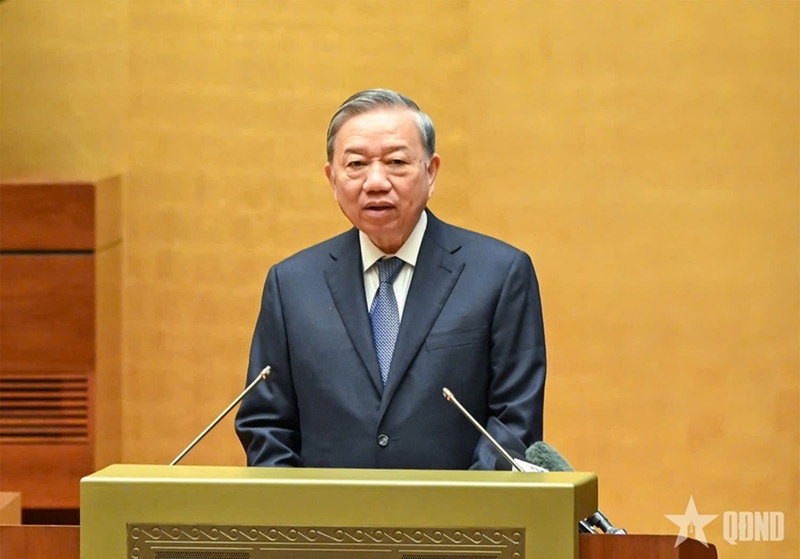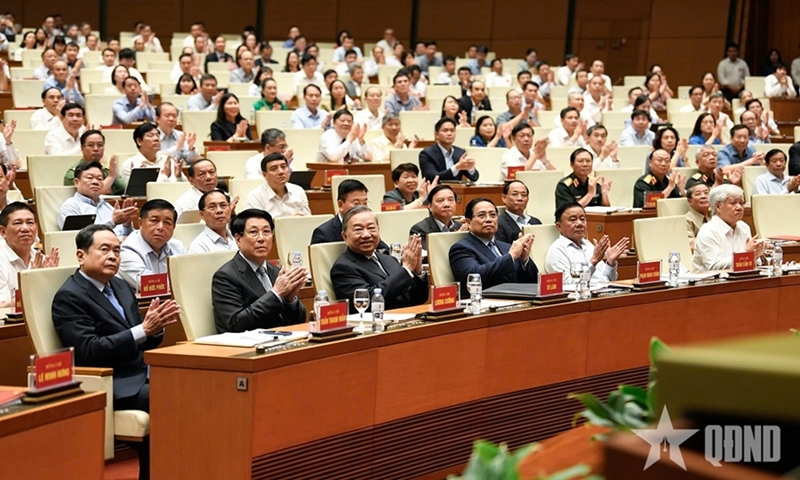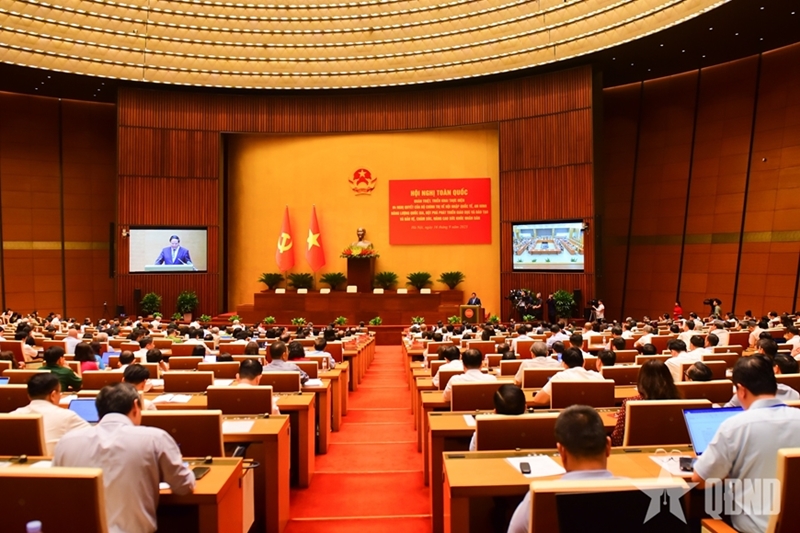The top leader made the remarks while addressing a national conference in Hanoi on September 16 on the dissemination and implementation of the documents: Resolution No.59-NQ/TW on international integration in the new situation, Resolution No.70-NQ/TW on ensuring national energy security through 2030, with a vision to 2045, Resolution No.71-NQ/TW on breakthroughs in education and training development, and Resolution No.72-NQ/TW on some breakthrough solutions to strengthen the protection, care, and improvement of public health.
    |
 |
|
Party General Secretary To Lam addresses the event. (Photo: qdnd.vn) |
The Party chief stressed that the overarching spirit of the documents is to put people and businesses at the center, with practical outcomes as the key benchmark.
Each agency, organization, and individual is responsible for translating the resolutions into daily work and concrete action plans, with resources, timelines, measurable indicators, oversight, and accountability, he said.
General Secretary Lam ordered the entire political system to implement the resolutions consistently, transparently, promptly, and clearly across all levels.
To ensure unified direction, smooth coordination, and implementation at the grassroots level, the Party chief called for the establishment of a central steering committee for each resolution or a single body to oversee all the Politburo resolutions.
He also suggested building a publicly accessible “digital dashboard,” updated weekly and monthly, to track core indicators, bottlenecks, and progress. Independent experts and policy assessment units may be invited to review solutions and provide objective evaluation and feedback, he said.
    |
 |
|
Leaders of the Party, State, National Assembly and Government at the event (Photo: qdnd.vn) |
For Resolution 59, the leader said it identifies international integration as a strategic driver, with domestic strength playing a decisive role. He stressed the need to bolster internal capacity while leveraging external resources, tightly linking integration with safeguarding national interests, and pursuing both cooperation and struggle.
Regarding Resolution 70, he noted its core goal is to ensure an energy system that is safe, stable, and equipped with reliable reserves; sufficient for production and daily needs; transitioning toward greener, low-emission sources; operating smartly on a digital foundation; and offering reasonable, transparent costs. By 2030, the resolution targets a minimum reserve margin of 15%, significant reductions in power losses, a higher share of clean energy aligned with planning, and the development of a competitive, transparent electricity market with a well-defined roadmap.
The General Secretary outlined 10 major groups of measures, including stronger investment in transmission and storage, particularly 500kV lines and smart grids; diversifying funding sources; developing a competitive power market with a clear roadmap, standardized long-term reference pricing and greater transparency; and diversifying fuels with LNG reserves supported by adequate storage, pipelines, and long-term contracts, as well as strategic coal and gas backups.
He underscored three priorities of institutional reforms; facilitating private-sector participation in renewable energy, power transmission and distribution; and ensuring energy development aligns with the socialist-oriented market economy, while advancing social progress, equity and welfare, safeguarding national defense and security, and protecting the environment.
    |
 |
|
An overview of the national conference (Photo: qdnd.vn) |
For Resolution 71, he stressed that education and training are defined as the foremost national policy and a key driver of national development. Education and training should follow the principle of “quality as the core, teachers as the key, and technology as the lever.”
Touching upon Resolution 72, the General Secretary underscored the goals of extending healthy life expectancy, reducing out-of-pocket expenses for patients, digitalizing the health system, strengthening primary health care, and improving service quality and patient satisfaction.
The leader stressed that the country’s new growth drivers stem from the organic linkages among the resolutions, explaining that international integration opens the door to the world, while stable and green energy is a prerequisite for production, schools, and hospitals. He added that high-quality education and training will supply engineers, doctors, and public service managers. A modern health system with strong preventive foundations will keep people healthy so they can study, work, and innovate.
The General Secretary called for joint efforts to turn aspirations into actions, actions into results, and results into renewed trust.
Source: VNA